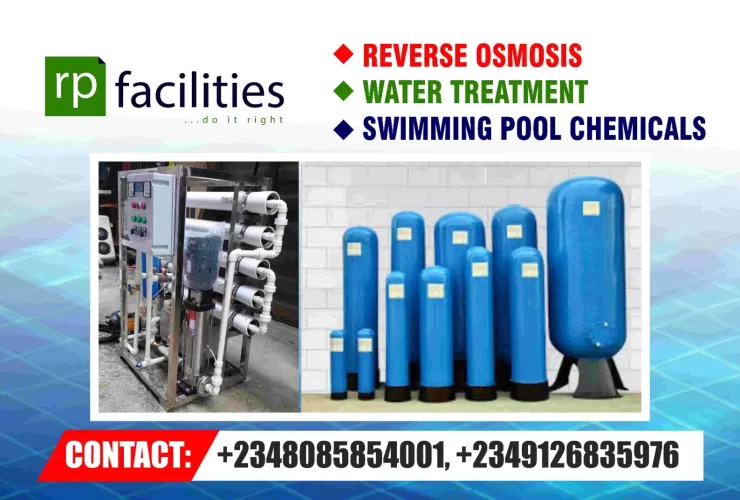Understanding the Key Operational Factors in Sewage Treatment Plants
Managing a sewage treatment plant involves a complex interplay of various factors that ensure the efficient, reliable, and environmentally responsible operation of the facility. In regions like Lagos, Nigeria, where rapid urbanization puts immense pressure on sanitation infrastructure, understanding these factors is crucial. This article delves into the key operational aspects of sewage treatment plants, including biodigester sewage treatment, and provides insights on finding reliable sewage treatment companies in Lagos.
Key Operational Factors in a Wastewater Treatment Plant
1. Energy Consumption
Energy is the backbone of wastewater treatment plants, powering essential equipment and processes. Electricity, in particular, is the primary energy source, driving processes like aeration, which are energy-intensive. Monitoring and optimizing energy usage can significantly reduce operational costs and environmental impact. Implementing energy-efficient technologies and practices is essential for sustainable plant operations.
2. Chemical Usage
Chemicals play a pivotal role in wastewater treatment, aiding in processes such as phosphorus removal and sludge dewatering. Managing chemical dosing and storage effectively is crucial to ensure optimal performance and minimize environmental risks. Proper handling and usage of chemicals can enhance treatment efficiency and prevent potential hazards.
3. Personnel Management
While many wastewater treatment plants are highly automated, human oversight remains indispensable. A skilled team is needed for daily operations, maintenance, and troubleshooting. Ensuring adequate staffing levels and continuous training is vital to maintain plant efficiency and address any operational challenges promptly.
4. Environmental Impact
Wastewater treatment plants must adhere to strict environmental regulations concerning emissions, including odor and noise. Implementing effective mitigation measures is necessary to minimize the plant’s environmental footprint. Regular monitoring and adopting best practices in emission control can help meet regulatory standards and protect the surrounding environment.
5. Waste Handling
The primary byproduct of wastewater treatment is dewatered sludge, which requires proper disposal or further treatment. Optimizing sludge processing and minimizing the final waste volume are important to reduce disposal costs and environmental impact. Exploring sustainable sludge management options, such as energy recovery or composting, can provide additional benefits.
6. Process Automation and Control
Automation is integral to modern wastewater treatment plants. Systems like SCADA (Supervisory Control and Data Acquisition) monitor and regulate treatment processes, ensuring consistency and reliability. Maintaining these automated systems is crucial for smooth operations. Regular updates and preventive maintenance can enhance system performance and longevity.
7. Operational Flexibility and Resilience
Wastewater treatment plants must be designed to handle fluctuations in influent flow and load, as well as potential equipment failures. Operational flexibility and resilience are key to maintaining consistent performance under varying conditions. Implementing robust design principles and contingency planning can help plants adapt to changing circumstances and ensure uninterrupted operations.
Biodigester Sewage Treatment:
Biodigesters are gaining popularity as a sustainable sewage treatment solution, especially in densely populated areas like Lagos. These systems use biological processes to break down organic waste, producing biogas and nutrient-rich effluent. Biodigesters offer several advantages, including reduced waste volume, energy production, and minimal environmental impact. They are particularly suitable for areas with high water tables, such as Lekki, Victoria Island, and Ikoyi.
Benefits of Biodigester Sewage Treatment
- Energy Production: Biodigesters generate biogas, which can be used as a renewable energy source, reducing reliance on fossil fuels.
- Nutrient Recovery: The effluent from biodigesters is rich in nutrients, making it suitable for agricultural use.
- Reduced Environmental Impact: Biodigesters minimize the volume of waste and reduce greenhouse gas emissions compared to traditional treatment methods.
- Cost-Effective: With proper management, biodigesters can be a cost-effective solution for sewage treatment, particularly in urban areas.
Finding Reliable Sewage Treatment Companies in Lagos
For those seeking to install or upgrade sewage treatment systems in Lagos, partnering with a reliable sewage treatment company is crucial. Here are some steps to find the right provider:
1. Research and Reviews
Start by researching companies online and reading customer reviews. Look for companies with a proven track record in sewage treatment and positive feedback from clients.
2. Expertise and Experience
Choose companies with extensive experience in wastewater treatment and a deep understanding of local conditions. Experienced providers are better equipped to handle the unique challenges of treating sewage in urban environments like Lagos.
3. Technology and Innovation
Opt for companies that leverage advanced technologies and innovative solutions, such as biodigesters and automated control systems. Cutting-edge technology can enhance treatment efficiency and sustainability.
4. Compliance and Certification
Ensure the company complies with local regulations and holds relevant certifications. Compliance with environmental standards is critical to avoid legal issues and ensure responsible operations.
5. Customer Service
Good customer service is essential for successful project execution and ongoing support. Choose a company that values customer relationships and provides prompt, reliable service.
Conclusion
Managing a sewage treatment plant involves balancing multiple operational factors, from energy consumption and chemical usage to environmental impact and process automation. Biodigester sewage treatment offers a sustainable alternative, especially in high-density areas like Lagos. By understanding these factors and choosing a reliable sewage treatment company, you can ensure efficient, effective, and environmentally responsible wastewater management.
If you’re in Lagos and looking for expert sewage treatment solutions, consider reaching out to reputable providers who can deliver tailored, innovative, and compliant services. Whether you need a new installation, an upgrade, or maintenance for your existing system, professional help can make a significant difference in achieving your wastewater treatment goals.
For more information or to contact a sewage treatment company in Lagos, visit RP Facilities Ltd for comprehensive services and expert advice on managing your wastewater treatment needs.



